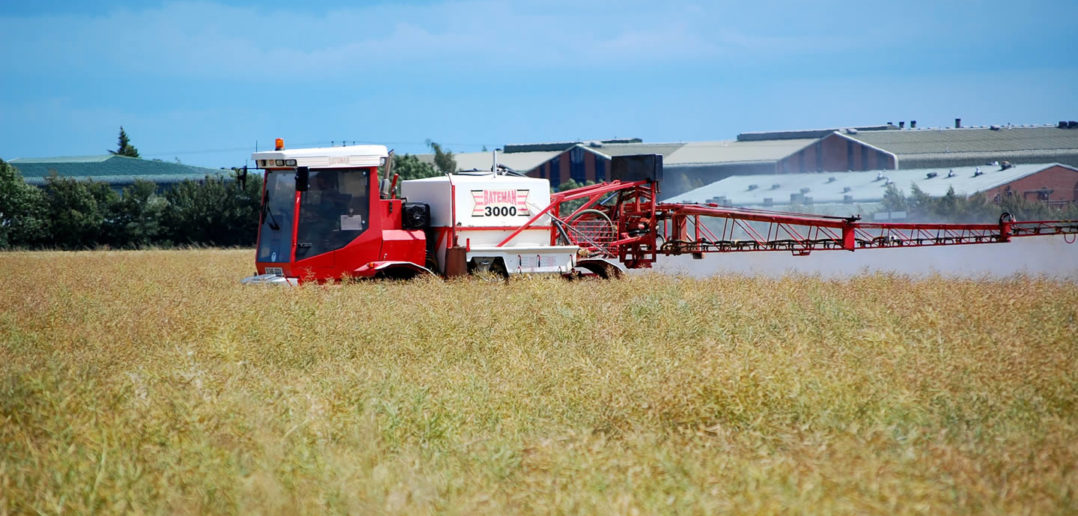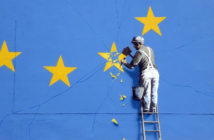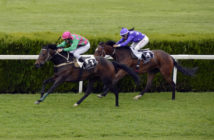EU negotiations on whether to renew glyphosate’s license have turned into one of the biggest political dramas of the year, one followed closely by both environmental activists and farmers who rely on it for their livelihoods. On November 9th, the spectacle escalated further as EU members once again failed to agree on a license extension for the active ingredient in the world’s most commonly used herbicide. Fourteen countries, including the UK, had favoured renewal, but ran up against opposition from powerful member states like France, Italy, and Austria. Germany, which is in talks to form a coalition government with the anti-glyphosate Greens, has so far abstained from taking a decision.
Having failed to come to an agreement for even a three-year renewal, the EU thus pushed the decision to the brink, since glyphosate’s licence expires on December 15th – raising the prospect of a nightmare situation for Europe’s agricultural community.
For many farmers in the UK, who depend on the molecule to protect their crops, the unnecessary drama exemplifies why many of them voted to leave the EU. While they might well end up regretting that decision, it is easy to see where they are coming from if one takes a closer look at the stakes of the debate – one that exemplifies the EU’s worst tendencies to give more weight to politicized scaremongering rather than evidence-based decision-making.
Glyphosate rose to the top of the EU’s agenda in 2015, shortly after the International Agency for Research on Cancer (IARC), a branch of the WHO, concluded that glyphosate was probably carcinogenic to humans. According to that same agency, glyphosate ranks alongside bacon and coffee in terms of carcinogenicity – an evaluation that has been as confusing for consumers as it has been for policymakers.
IARC’s finding is contradicted by the European Chemicals Agency, the European Food Safety Authority, and the German Federal Institute for Risk Assessment, as well as national regulatory agencies in Canada, Australia, the United States, and elsewhere.
How did IARC reach such a divergent conclusion? According to a recent scoop by Reuters, the agency edited out findings from a draft version of its evaluation of glyphosate that contradicted its final conclusion that the molecule causes cancer. Reuters found 10 major changes made between the draft chapter and the published version of IARC’s evaluation, in which negative conclusions about glyphosate’s carcinogenicity were either entirely removed or replaced with neutral or positive ones.
It is still unclear why these findings were edited, but some have questioned the impartiality of the scientists included on the panel. According to reporting by the Times, one of those behind the decision, American scientist Christopher Portier, signed a consulting contract with law firms bringing claims by cancer victims against glyphosate’s manufacturer shortly after he joined the IARC’s evaluation panel. He stands by his recommendation and denies his advice was motivated by financial considerations, but has admitted that his connection to the law firms should have been previously declared as a possible conflict of interest.
Nonetheless, a blanket ban on glyphosate would have dramatic consequences. In Europe, such a ban would entail a major reconfiguration of agricultural systems, requiring farmers to shift from methods like conservation agriculture to more expensive techniques like ploughing, which can be worse for biodiversity and cause more soil erosion. In total, according to research complied by Oxford Economics and the consultancy Andersons, UK farm output could drop by roughly £940 million without glyphosate, partly because of a 20% drop in wheat production. And research from the UK-based Amenity Forum estimates that replacing glyphosate with costlier herbicides would add £228 million to UK council tax bills for citizens already facing tax increases for social care. It is because of figures like these that the Yorkshire Post recently quoted one local farmer as saying “It makes a mockery of the authorisation process in the EU and discredits the science that the decisions should be based on.”
It is not only UK farmers that stand to lose if glyphosate loses its license. According to a separate study by Oxford Economics, British travellers could be slapped with higher train fares and more frequent delays if the herbicide could no longer be applied on the nation’s rail tracks. The shift to manual weeding and other forms of maintenance could increase costs by a total of £85 million a year – costs that would end up being shifted onto consumers.
Despite repercussions like these – which would be echoed across Europe were a ban to take effect – a number of MEPs and member states alike look set to vote down the reauthorization for glyphosate. Meanwhile, the Commission has been saying that member states have been hiding behind the executive and has urged them to openly pronounce their support for relicensing glyphosate.
If the Commission does not win the majority it needs, the final decision could fall to EC President Jean-Claude Juncker – who has often said he is tired of member states shifting the blame to Brussels for these kinds of politically loaded decisions. It is easy to see why. After all, it’s exactly this kind of needless dramatics that helped fuel the Euroscepticism that led to Brexit.




